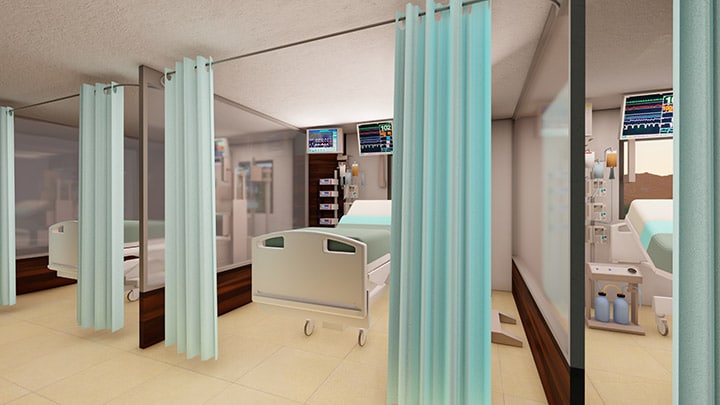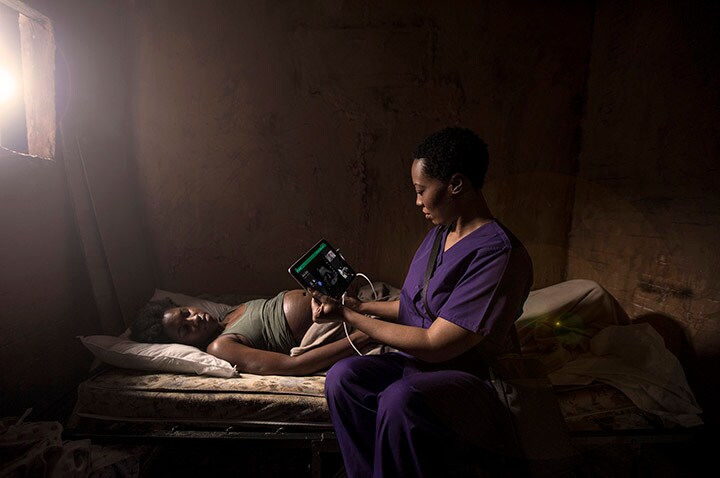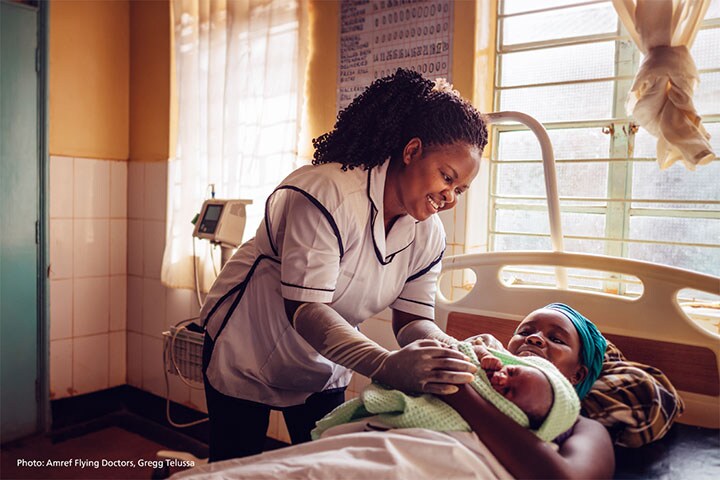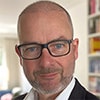Philips has committed to improving the lives of 2.5 billion people per year by 2030, including 400 million people in underserved communities. This commitment, part of Philips’ broader ESG focus to do business responsibly and sustainably, is driving far-reaching public and private collaboration, leveraging digital innovation and new financing models to improve access to care for underserved communities, while strengthening global health systems and securing a path to universal health coverage.
To live up to this commitment, Philips is connecting people, data, technology, funds and education together with customers and partners in one care ecosystem to resolve global healthcare challenges.
Hear from three experts on how Philips is helping reach these goals and live up to its commitment:
What are some tangible things that Philips is doing to help improve access to care in rural populations around the world?
Sachin Grover, Solutions Leader at Philips India Subcontinent: Let’s take India, for example. Around 70% of India’s population lives outside of major cities, but major cities are where most of the private investments in healthcare have been made. Philips is working to enable access to care and close the gap that exists in India between urban and rural care. One way we’re achieving this is though solutions like portable ICUs that are digitally connected to larger care centers and global experts.

These mobile clinics started as a way to fill the urgent need for more beds during the COVID-19 pandemic. Parts of the clinic arrive on a truck and in two days they can be completely built and ready for patients. They are technologically advanced — healthcare workers can simply plug in their devices and use remote capabilities to create a tele-ICU. These portable ICUs are designed in a way that they can be constructed for a specific purpose, then repurposed once that original purpose is fulfilled.
What are Philips solutions to improve access to maternal health services in underserved communities?
Ties Kroezen, Venture Leader for Connected Primary Care Solutions at Philips: Half the world lacks access to essential health services, such as good maternal care [1]. Sub-Saharan Africa and South Asia, account for 86% of maternal deaths worldwide [2]. Root causes for this tragedy include lack of education on when and where to seek care, lack of access to health facilities and poor quality of care due to a lack of staff and medical equipment and supplies.
Philips is a strong player in technology for maternal and child health, such as obstetric ultrasound and fetal monitoring. For example, we started a collaboration with the Gates Foundation to develop artificial intelligence for the Philips Lumify Handheld Ultrasound. This collaboration aims to improve pregnancy outcomes by enabling lower-level healthcare professionals, such as nurses and midwives, to perform obstetric ultrasound, giving more women around the world access to at least one ultrasound during pregnancy, in line with WHO recommendations.

Another innovation is the cloud-based Philips Mobile Obstetrics Monitoring. This clinical software supports the first 1,000 days of life, from antenatal care through labor and delivery to postnatal care for the mother and child until the child is two years old. Mobile Obstetrics Monitoring connects patients to community health workers, midwives and doctors enabling a protocolized care path. Patients are supported with educational information and tools, caregivers through clinical decision support and a pregnancy risk score.
Philips Mobile Obstetrics Monitoring is being implemented all over the world, including deployments across India, Africa, Indonesia and Brazil. In multiple clinical trials the software demonstrated that it can radically reduce maternal mortality while improving the identification and referral of high-risk pregnancies [3].
Philips also offers a free app called Pregnancy +. It supports women throughout their pregnancy by providing proactive, personalized health information, including diet and exercise tips, labor information, and images reflective of the baby’s development.
How is Philips ensuring that it is meeting the needs of local communities?
Olesya Struk, Senior Director Group Sustainability at Philips: Partnerships and cross-sector collaboration are critical enablers to deliver and accelerate access to healthcare in low- and middle-income countries. For example, Philips teams up with private companies and NGOs in the Digital Connected Care Coalition to drive the adoption of digital healthcare in underserved communities, and we work closely with UN organizations, such as the World Bank and World Health Organization, as part of Universal Health Coverage 2030 private sector constituency.
On a project basis, we make sure to bring together complementary competencies to achieve a specific objective and create sustainable solutions. Working with governments and UNICEF, for example, Philips deployed a cloud-based Monitoring and Evaluation solution to improve equipment management in 100 health facilities across Africa, demonstrating equipment uptime improvement. Very recently, Philips Foundation and RAD-AID International announced a multi-year partnership to leverage Philips’ expertise in mobile ultrasound services to improve access to virtual care in hard-to-reach areas for 50 million people.

Every community has unique factors to consider, and designing healthcare solutions is different depending on where you are and what you need. Philips takes pride in the fact that the nature of our partnerships are tailored specifically to that. It is the only way to improve lives and to solve complex health problems. We measure ourselves on the goal to improve the lives of people annually. Digital technology, combined with new business – and financial models and partnerships, are core to our efforts. They can reduce healthcare costs and extend access in a sustainable and long-term fashion, so more people can access the care they need without suffering financial hardship. It also leads to a better patient experience and enables healthcare practitioners to deliver the best care possible.
You can also read the latest blog post by Marnix van Ginneken, Philips’ Chief ESG & Legal Officer. “Equitable access to care for mothers and children”
[1] World Health Organization
[2] UNICEF
[3] Philips data available on request
Share on social media
Topics
Contact

Joost Maltha
Philips Global Press Office Tel: +31 6 10 55 8116
You are about to visit a Philips global content page
Continue












